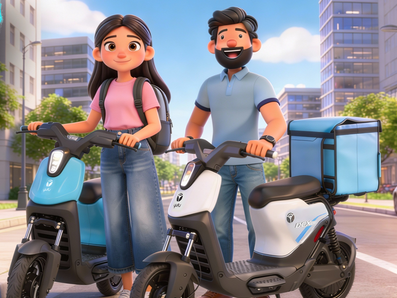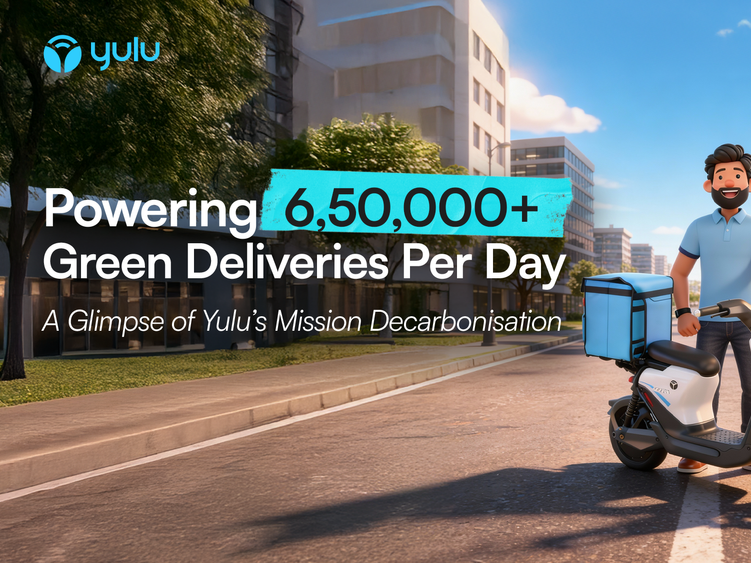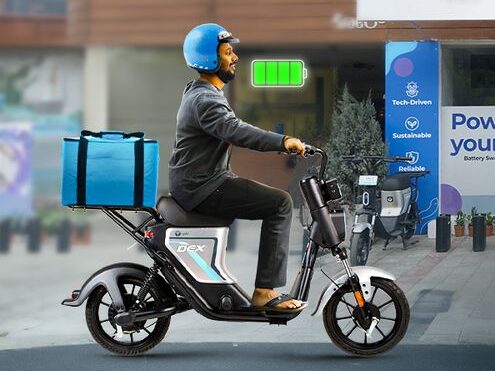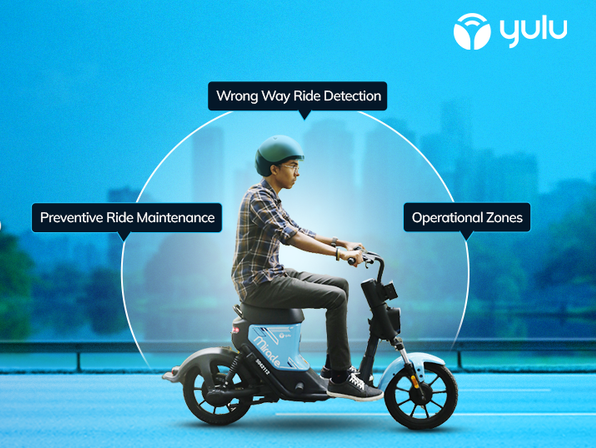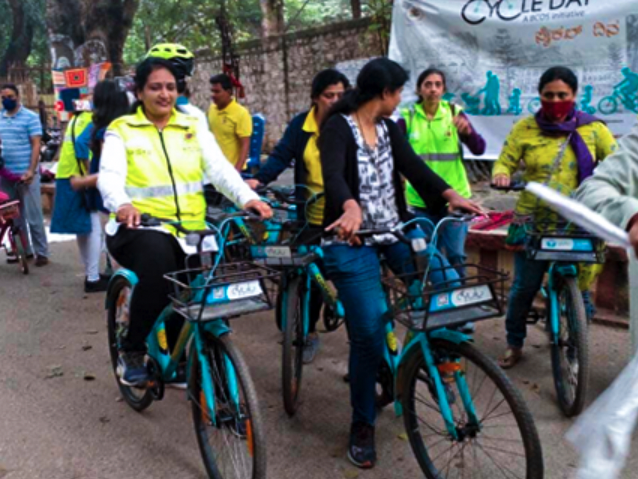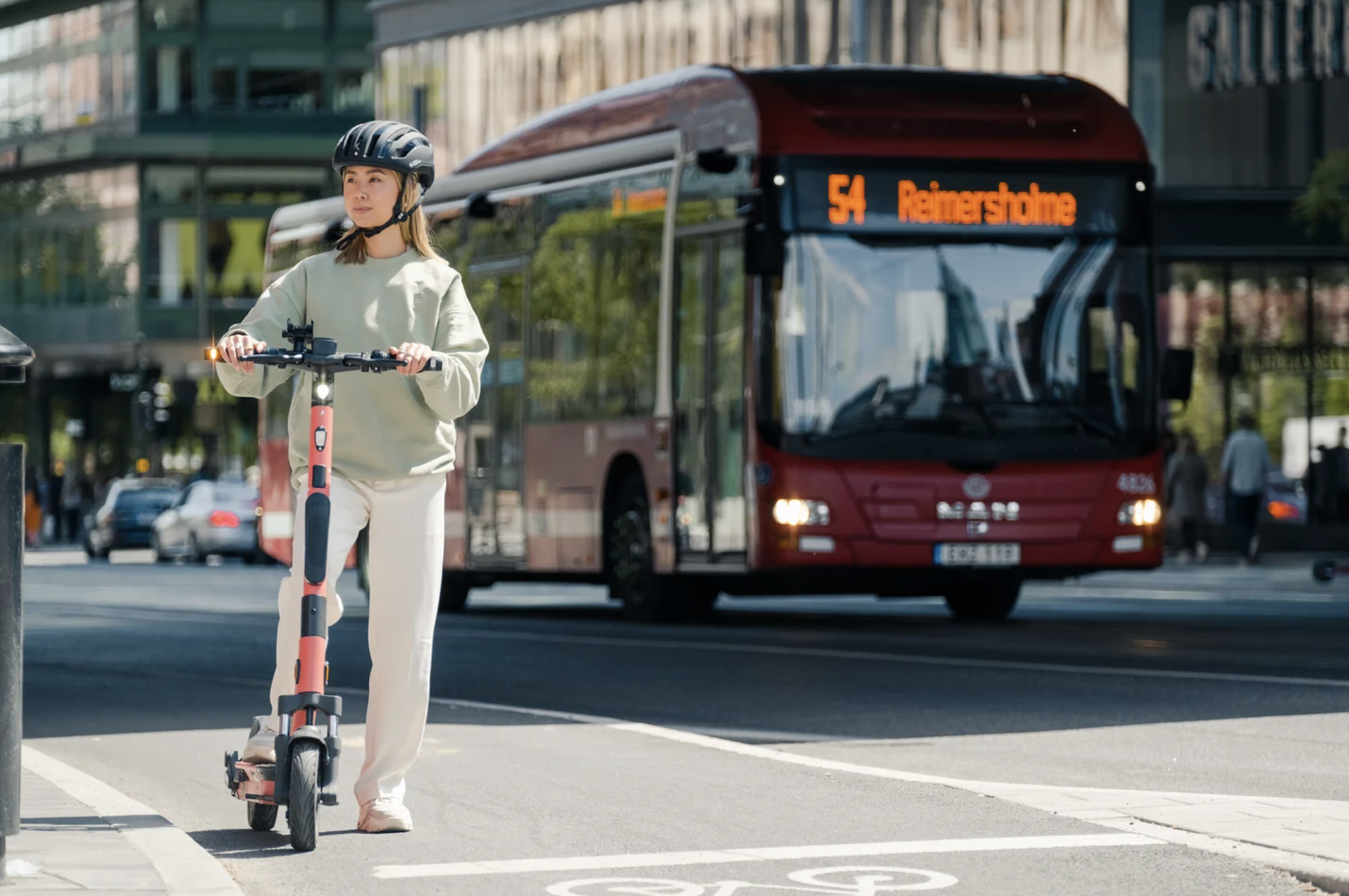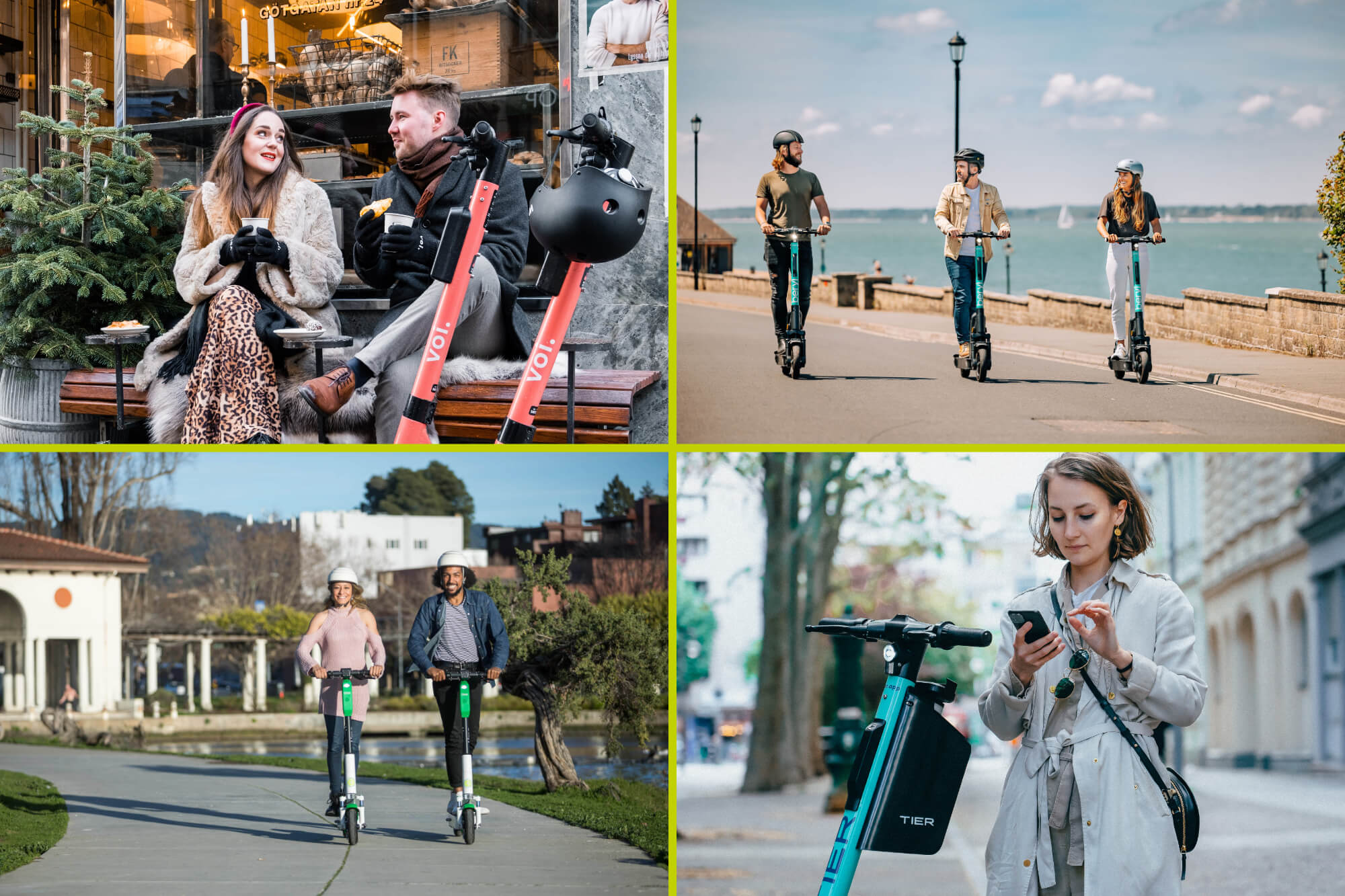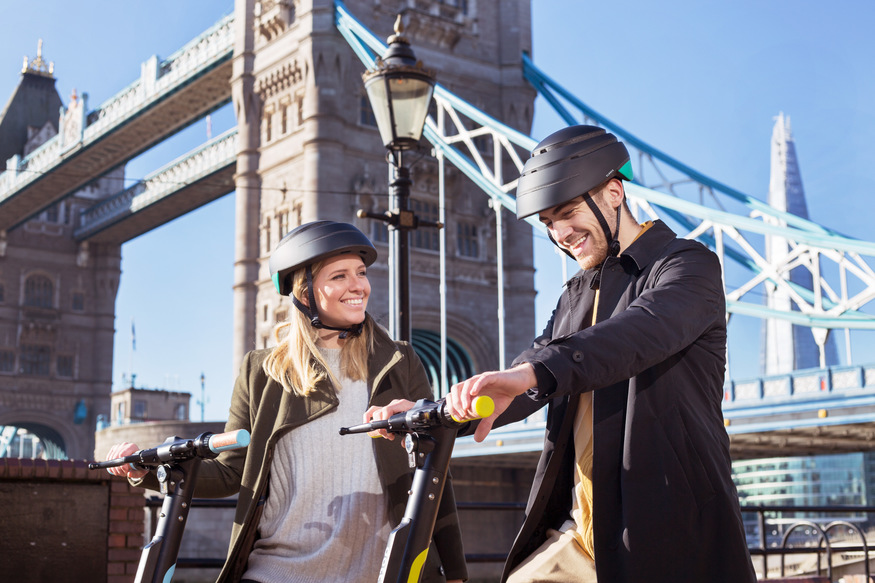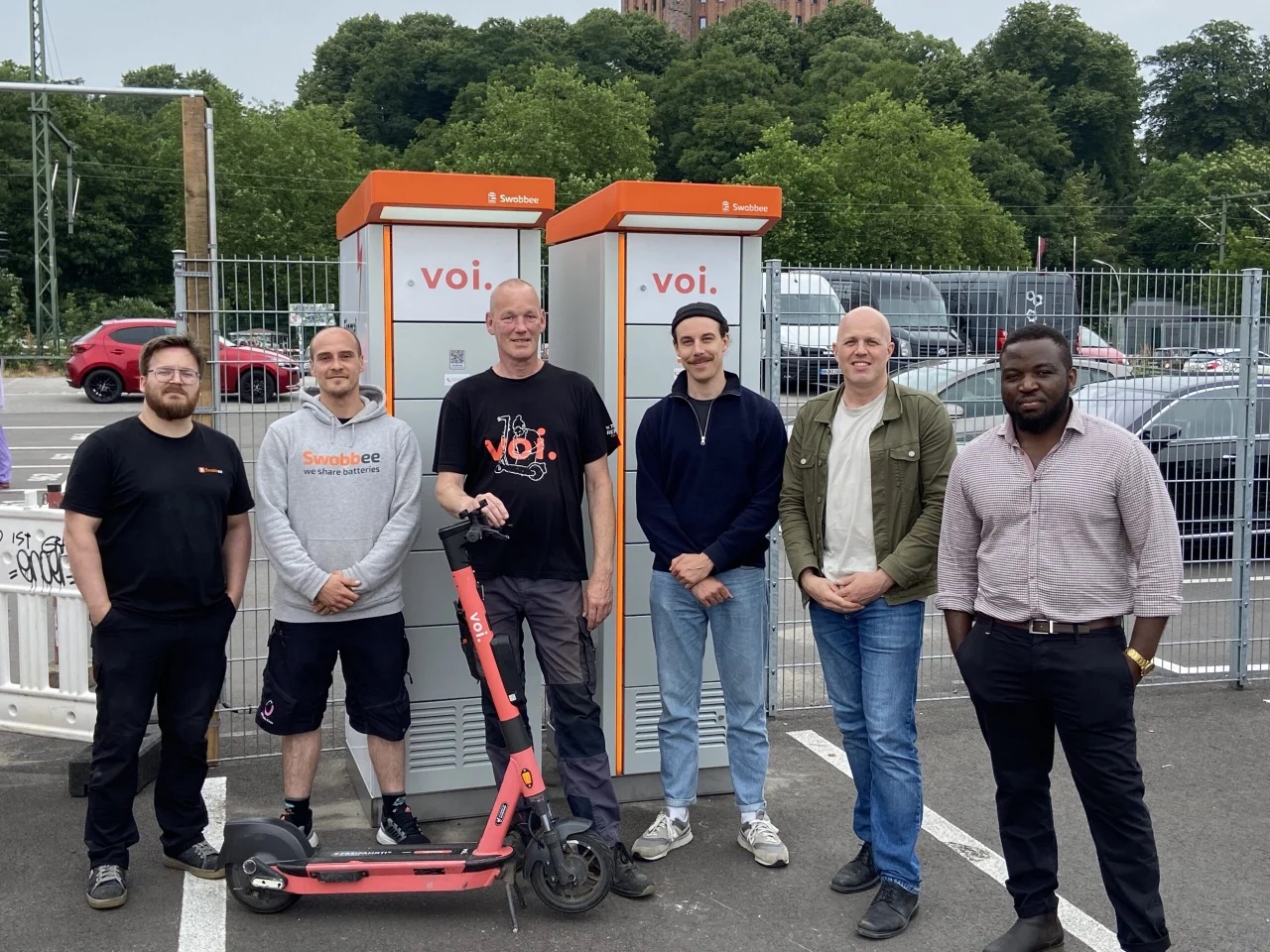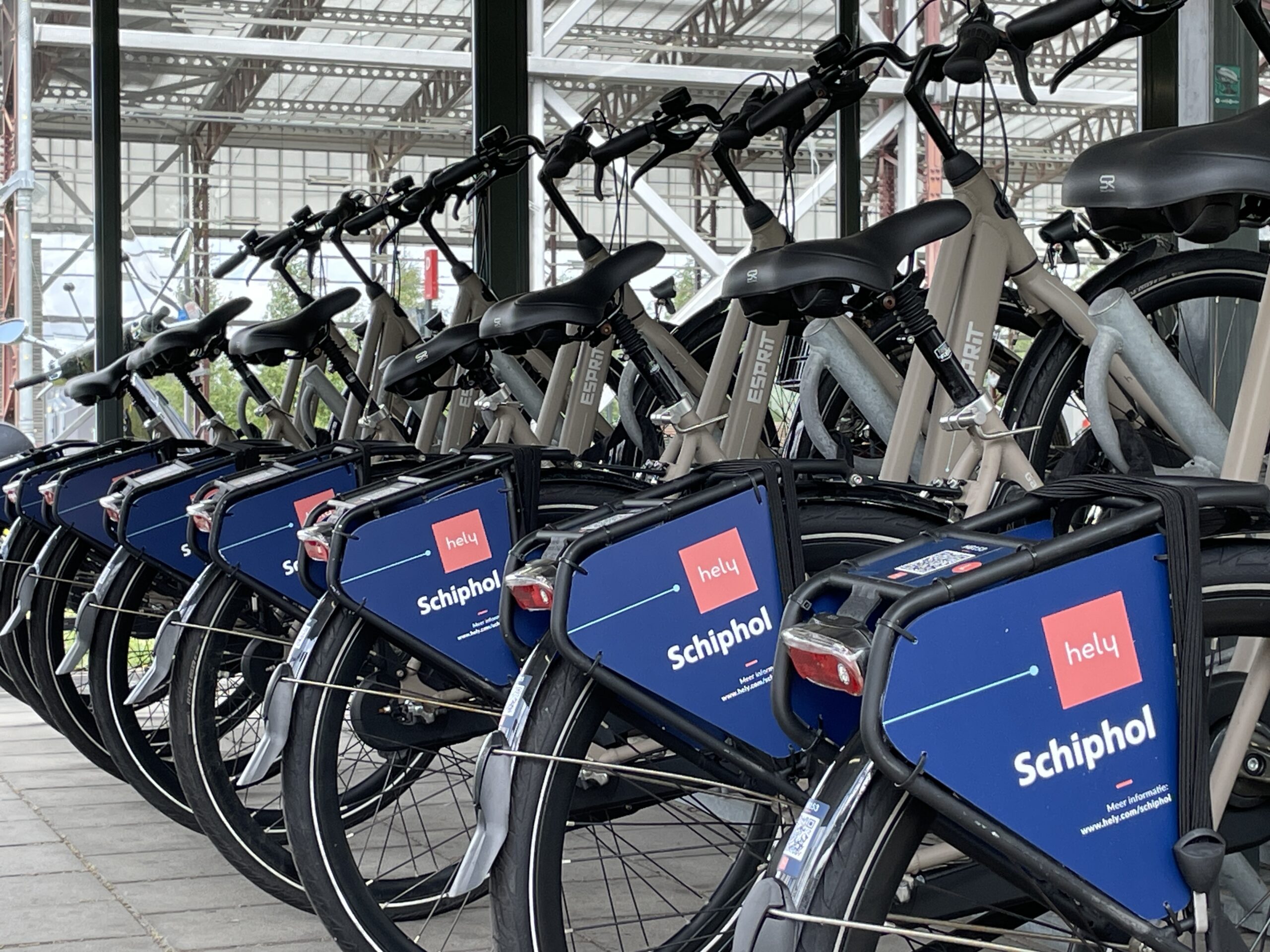The monsoon is a beautiful time of year in India. However, the lashing winds, driving rain and submerged roads can pose risks to motorists if they don’t take adequate precautions.
If you ride an electric two-wheeler vehicle, you may have questions such as: “Are electric two-wheelers water-resistant?”, “What are some safety guidelines for riding an electric two-wheeler?”, or “How can you take care of your EV during the monsoons?” You may also be curious about the differences between riding electric and non-electric vehicles in the rain.
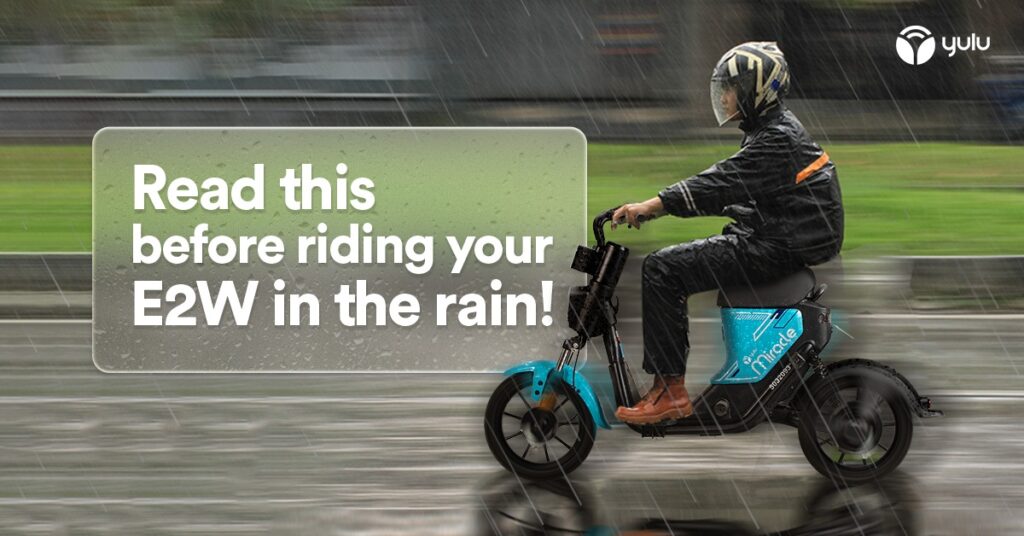
In this article, we will answer your questions and give you a detailed guide on how to ride an electric vehicle during the monsoons. We will also tell you what makes Yulu’s smart and robust electric two-wheelers a safe, efficient, and enjoyable companion in both wet and dry weather.
What Makes Electric Vehicles Safe to Use during the Rains?
Electric vehicles don’t emit any gases as byproducts of fuel combustion. Therefore, they don’t have exhaust pipes unlike their fossil-fuel counterparts. This reduces the risk of flood or rain water entering the engine and causing issues such as rusting or engine seizure.
However, this doesn’t imply that electric two wheelers can be driven through flooded roads. Every EV has sensitive components like the battery, motor and motor controller. If not properly designed and insulated, these components are susceptible to water ingress which can cause risks such as oxidation (rusting) and short-circuits of powertrain or electrical parts. Thus, a lot hinges on the Ingress Protection, or ‘IP’, rating of the vehicle and its components. In Yulu’s electric two-wheelers, the battery, connector, motor and motor controller are all IP67-rated. This means that these components will continue to work even if they are submerged for up to 30 minutes in water up to 1 metre (3.2 feet) deep.
Rigorous testing also determines an EV’s capability to withstand wet conditions. Yulu’s EVs undergo a ‘shower test’ where each vehicle is placed in rain-like conditions for 64 hours. The vehicle passes the test only if it can withstand the water spray without experiencing oxidation, short circuit, leakage, or performance degradation. Yulu’s vehicle battery is also compliant with the AIS 156, which is an Automotive Industry Standards norm on water ingress. AIS 156 mandates the testing of charged batteries to ensure that water cannot enter the battery unit.
As you can see, the robust build and smart design of Yulu’s electric vehicles allow them to be comfortably ridden in rainy conditions. However, there are some safety precautions you can take when riding any EV two-wheeler in the monsoons.
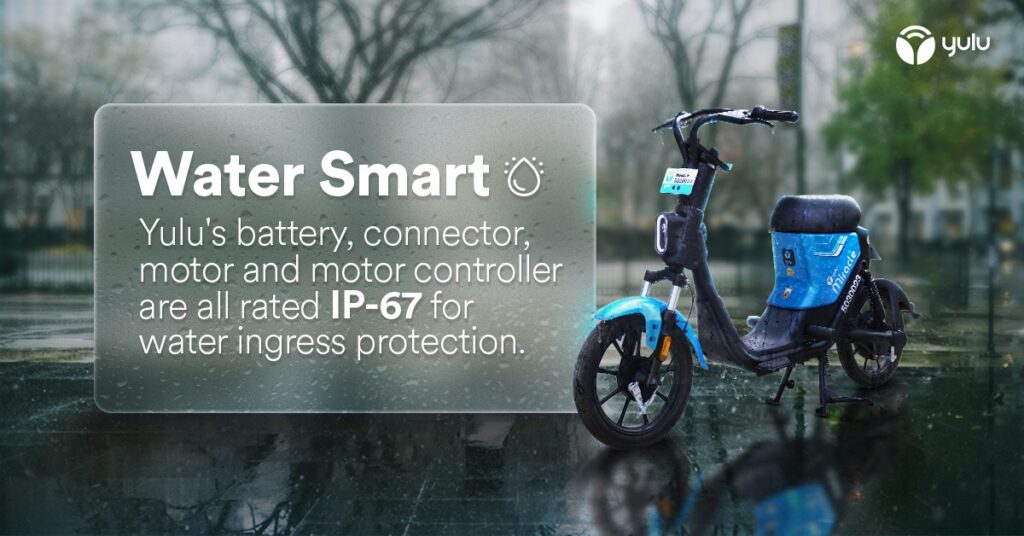
What Are the Safety Guidelines to Follow When Riding in the Rains?
Avoid deep water: While EVs can take on waterlogged roads to an extent, they are not meant to be immersed in deep water. As a rule, do not venture onto a road if you cannot gauge the depth of the water or if the water level seems higher than 2-3 feet.
Gauge the road condition: Sustained physical shocks due to potholed roads can be jarring for your EV and can damage its axle—which is low to the ground—or the components above it. Hence, ride slowly over potholed or damaged roads.
Change lanes safely: This one’s applicable for all vehicles, large or small. Because rain affects visibility and braking speed, changing lanes rapidly can be a recipe for disaster. Always use your vehicle’s indicator lights and/or headlights in a downpour, and change lanes slowly if you must.
Use both brakes: To prevent your ride from skidding on the road, use both brake-levers. This ensures that the vehicle’s wheels slow down at a uniform speed.
Wear a helmet and heed the laws: Regardless of the type of two-wheeler you ride, it is necessary to wear a helmet in all conditions. Follow all traffic and road safety rules and be a responsible rider.
How Can You Take Good Care of Your Electric Two-Wheeler in the Rainy Season?
Being a responsible rider means taking care of yourself as well as your electric vehicle. Here are some tips you should follow to take of your two-wheeler:
Avoid parking an EV in the rain: If you have the opportunity, park in a shaded area where the EV is not directly exposed to rainwater.
Wipe down the vehicle with a cloth: Once you park the EV, wipe it down with a dry cloth to minimise the chances of water ingress.
Call Yulu’s customer support: In the unlikely event that your Yulu faces a hardware or software glitch, you can exchange it at the nearest Yulu zone for a fresh ride, or call up our 24×7 customer support helpline for immediate support.
We hope you found this guide useful. Yulu’s EVs undergo stringent quality checks and periodic maintenance to ensure high uptime in all conditions. So why wait? Enjoy the monsoon magic in a few simple steps with your very own Yulu ride!
This article was originally published by Yulu.



